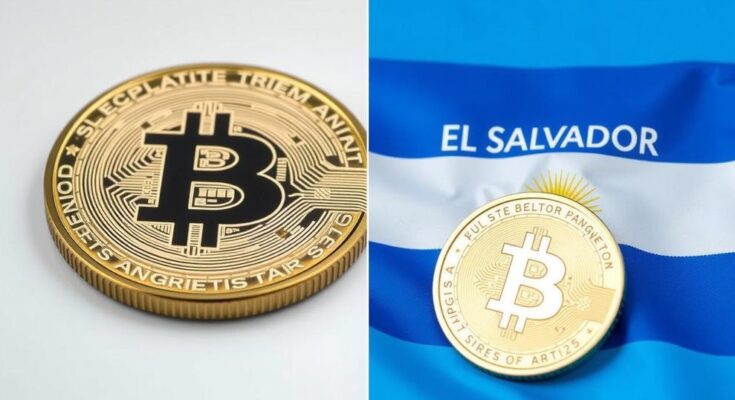This edition of Latam Insights highlights El Salvador’s $1.4 billion deal with the IMF, contingent upon scaling back bitcoin adoption. Argentina has announced increased surveillance for crypto crimes, and the Brazilian Senate is preparing to discuss cryptocurrency impacts within the economy in a 2025 session.
In a significant development, El Salvador has secured a $1.4 billion credit facility from the International Monetary Fund (IMF), an agreement that necessitates a reduction in the country’s bitcoin adoption. This decision aims to stabilize the nation’s economy post-pandemic, with broader aspirations to garner additional financial support totaling $3.5 billion from various international institutions. Concurrently, Argentina has initiated measures to actively monitor cryptocurrency-related crimes, underscoring the government’s commitment to countering financial misconduct in the burgeoning digital asset sphere. Lastly, the Brazilian Senate is gearing up for a session in 2025 dedicated to discussing cryptocurrency’s implications for the economy, signaling the increasing legislative focus on digital currencies across Latin America.
The recent financial maneuverings and legislative measures in Latin America indicate a shift in governmental attitudes towards cryptocurrency. El Salvador’s substantial agreement with the IMF points towards an effort to improve its economic recovery while managing the complexities associated with digital currencies. Argentina’s resolution to patrol cyberspace reflects growing concerns over financial crimes facilitated by crypto-assets. Meanwhile, Brazil’s planned Senate session demonstrates an evolving recognition of cryptocurrency’s potential influence on the economy and finance in the region, aiming to prepare for future developments.
The latest updates from El Salvador, Argentina, and Brazil reveal a region grappling with the duality of cryptocurrency adoption: the opportunities it presents for economic growth and the accompanying risks of financial crime. El Salvador’s engagement with the IMF showcases a desire for economic rehabilitation, while Argentina’s increase in surveillance signifies a protective stance against potential abuses within the crypto space. Furthermore, Brazil’s upcoming Senate discussions highlight a proactive approach to understanding and integrating digital currencies into the economic landscape.
Original Source: news.bitcoin.com




